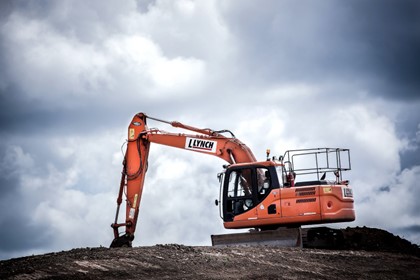
Every iota of operational efficiency and safety is pivotal in an industry constantly juggling stringent timelines, budget constraints, and safety regulations. Always a fertile ground for innovation, the construction industry has recently embraced telematics technology with open arms. By amalgamating fleet management telematics and GPS data solutions, construction enterprises are unlocking a trove of benefits ranging from enhanced efficiency to fortified safety.
Read on to learn more about how telematics is augmenting productivity and safety on construction sites.
Unveiling Telematics
Telematics, a fusion of telecommunications and informatics, furnishes real-time data about the vehicle or equipment it’s tethered to. This data can encompass a spectrum of information, from location tracking via GPS to monitoring fuel consumption and maintenance needs. The confluence of fleet management telematics and GPS data solutions on a unified platform has proven to be a game-changer in handling owned or rented equipment, thereby paving the way for an optimized, safer work environment.
Pivotal Role In Monitoring Heavy Equipment
The lifeblood of any construction project lies in its heavy machinery and equipment. A telematics system affords a meticulous overview of every machine’s status and performance. This encompasses monitoring engine hours, fuel consumption, and idling time, all in near real time.
Such vigilance is instrumental in planning maintenance schedules proactively, thus mitigating downtime and elongating equipment lifespan. Additionally, real-time GPS tracking ensures the swift pinpointing of equipment, which is crucial in vast job sites and the prevention of unauthorized use or theft.
Ensuring Compliance Seamlessly
Regulatory compliance isn’t merely about adhering to laws. It’s a cornerstone for fostering a safe and efficient working environment.
Telematics simplifies compliance management by automating many aspects of reporting and monitoring. For instance, it ensures emissions are within permissible limits or monitors the hours of equipment operation to adhere to local regulations.
Automated reporting minimizes human error and provides an auditable trail, a requisite during inspections or in case of incidents.
A Vanguard Against Accidents
Safety is paramount in construction, and telematics plays a seminal role in upholding it. By monitoring operator behavior and equipment performance, telematics can identify potential issues before they become serious problems. For example, early warnings regarding maintenance needs or erratic operations can prevent accidents, saving both lives and resources.
Telematics also provides critical data that can be utilized for training and education, forging a culture of safety and accountability. Imagine being able to analyze operator behavior and tailor training programs accordingly, a feat made possible by telematics’ comprehensive data collection.
Boosting Operational Efficiency
Enhancing operational efficiency is synonymous with elevating profitability in a sector where every minute translates to costs. Telematics assists in painting an accurate picture of the operational dynamics on the job site.
It provides insights into equipment utilization, idle times, and workflow efficiencies, which are imperative for decision-making and operational optimizations. Project managers can efficiently coordinate between different teams and assets through precise GPS tracking and time-stamped data, ensuring that the right equipment and personnel are in the right place at the right time.
Moreover, the data accrued over time aids in predictive analysis, helping to foresee potential issues and allowing for better project planning and resource allocation. This proactive approach reduces delays, keeps projects on budget, and significantly improves the overall productivity on the construction site.
Cost Management
One of the unsung advantages of telematics is its role in cost management. The continuous monitoring of fuel consumption, engine hours, and maintenance needs allows for a more accurate assessment and control of operational costs.
Construction firms can make data-driven adjustments that result in substantial cost savings by identifying areas of waste or inefficiency. Furthermore, you can track and monitor rented equipment, ensuring returns on investment are maximized, and contractual obligations are met. This saves the firm from incurring additional rental fees or penalties.
Future Forward
The advent of telematics in construction marks the beginning of a more data-driven, efficient, and safe operational paradigm. However, the evolution doesn’t stop here. With advancements in Artificial Intelligence (AI) and Machine Learning (ML), the future of telematics shines bright.
These technologies can analyze the vast amount of data collected by telematics systems. They can provide even more accurate predictive maintenance schedules, optimize operational efficiencies, and enhance safety protocols. Additionally, as the Internet of Things (IoT) continues to burgeon, integrating telematics with other smart technologies on the job site will further streamline operations.
In the foreseeable future, we could witness a job site where every piece of equipment, vehicle, and even building materials are interconnected. In turn, this can provide a unified operational view that allows for real-time management and optimization.
Level Up With Zubie
Incorporating telematics in the construction sector isn’t a mere trend but a significant stride towards achieving heightened levels of safety and operational excellence. As construction projects burgeon in complexity and scale, leveraging telematics will transition from being a competitive advantage to an operational necessity. The convergence of fleet management, GPS data solutions, and telematics technology is setting a new standard in construction management — one that propels the industry forward into a realm of enhanced productivity, safety, and compliance.
Zubie has established itself as a pioneer in the telematics industry, providing cutting-edge solutions that cater to the unique needs of construction companies. With features such as real-time GPS tracking, diagnostic monitoring, heavy vehicle J1939 interface connectivity, and customized reporting capabilities, Zubie’s platform enables you to track your assets and fleets remotely. You can make better data-driven decisions, reduce downtime, and improve overall operational efficiency.
Contact Zubie today to learn how you can integrate our advanced telematics solutions into your construction operations and take your business to new heights.
